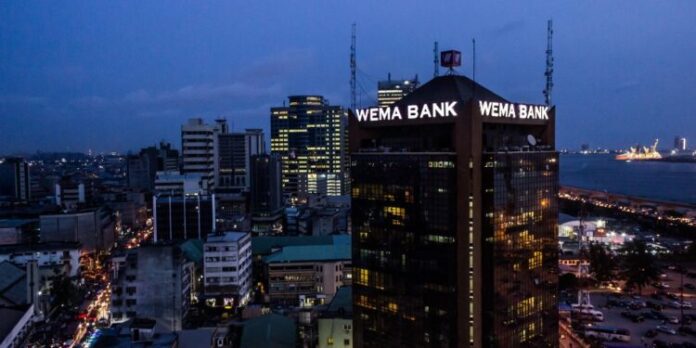Wema Bank set to raise N150 Billion new capital through hybrid of rights issuance, public offer, private placement
Wema Bank’s first half of 2024 results show significant growth. The bank reported a strong 100.5% increase in gross earnings
Wema Bank recently held its first half year 2024 investor and analyst conference call, where the bank disclosed plans to raise N150 billion in new capital through a hybrid of rights issuance, public offer and private placement.
During the call, the Bank’s Executive Director, Tunde Mabawonku, highlighted the bank’s strategy, stating:
“We have obtained shareholder approval to raise N150 billion in qualifying capital. We will be doing this through a combination of a rights issuance and a special private placement.
Our expectation is to initiate this process towards the end of the year, with completion expected in Q1 2025, all within the remaining 18 months of the regulatory timeline.
While shareholders’ funds are currently around N200 billion, our qualifying capital stands at N67 billion. To maintain our status as a commercial bank with national authorization, we need to raise this capital in the coming months, ensuring we meet our licensing requirements.”
In response to a question about potential merger discussions, Mabawonku clarified that such talks are premature at this stage. He stated, “M&A conversations might seem a bit premature at this level. Our focus is on capitalizing in line with regulatory requirements and continuing to do business.”
With this context, the focus now shifts to whether Wema Bank’s current performance, reflected in various financial ratios, will be sufficient to persuade investors to participate in this capital-raising effort.
Current Performance: The Case for Optimism
Wema Bank’s first half of 2024 results paint a picture of significant growth. The bank reported a strong 100.5% increase in gross earnings, reaching N178.63 billion, up from N89.09 billion in the first half of 2023. The bank attributes this surge to a 91% increase in interest income and a 155% rise in non-interest income.
The bank’s profit before tax (PBT) also saw an impressive 153.5% jump, climbing to N30.56 billion from N12.05 billion in the same period last year. This represents over 100% of 2023 figures. This even surpassed the bank’s pre-tax profit 5-year compound annual growth rate of 45%.
These results are underpinned by improvements in key financial ratios. For instance, Wema Bank’s Net Interest Margin (NIM) improved to 7.43% in the first half of 2024, up from 6.12% in the same period of 2023.
This uptick indicates that the bank is efficiently managing its interest-earning assets, a critical factor in maintaining profitability in a high-interest-rate environment. An improved NIM is often a sign of a well-managed balance sheet.
The Return on Average Equity (ROAE) also paints a favorable picture. Although slightly down from 39.28% in 2023, Wema Bank’s ROAE of 36.16% in the first half of 2024 remains significantly higher than the 19.25% recorded in 2022.
This indicates that the bank continues to generate substantial returns on shareholders’ equity, which should be attractive to investors considering participating in the capital raise.
Furthermore, the Non-Performing Loan (NPL) ratio, which measures the percentage of loans either in default or close to default, has declined to 3.69%. This reflects a significant enhancement in the quality of Wema Bank’s loan portfolio.
Additionally, the NPL coverage ratio has increased from 76% to 100%, showing that the bank now has more than enough provisions to cover its non-performing loans.
Concerns and Caution
However, not all the numbers are as rosy as they might initially appear. One significant area of concern is Wema Bank’s Cost-to-Income Ratio, which stood at 66.65% in the first half of 2024.
While this represents a slight improvement from the 64.37% recorded in 2023, it indicates a notable rise compared to earlier years. A higher Cost-to-Income Ratio suggests that the bank’s operational costs are growing faster than its income, which could squeeze profitability in the long term.
For investors, this might signal a potential challenge that the bank needs to address, raising questions about whether the capital raise will truly be value-accretive or merely a stopgap measure.
Furthermore, the rising cost of funds is another factor that potential investors should consider. In the first half of 2024, Wema Bank’s cost of funds increased by 27%, reaching 7.0% compared to 5.5% in the same period in 2023.
A higher cost of funds could exert pressure on the bank’s profitability, particularly if the current interest rate environment remains high.
Compounding these concerns is a substantial increase in loan impairment, which surged by 474% in the first half of 2024, reaching N5.2 billion; nearly 70% of the total figure for 2023. The continuous rise may moderate the growth in net interest income after impairment charges and overall profitability.
Valuation and Market Sentiment
Wema Bank’s share price has been a relatively bright spot. Despite a broader decline in the banking sector, where the average performance has been a drop of 1.31%, Wema Bank’s share price has gained 12.50% Year-to-Date (YtD).
The relatively strong share price performance in a declining sector and the low valuation multiple may offer an attractive entry point for investors seeking value, which could bode well for the capital raise.
Additionally, the bank’s current earnings multiple of 0.8x, which is lower than the sector average of 2.28x, could indicate that the market is undervaluing the bank
The bank’s strong profitability, improved NIM, and impressive ROAE are clear positives that suggest a well-managed institution with growth potential.
However, the rising Cost-to-Income Ratio, cost of funds and loan impairment charges could moderate profitability if not checked and may temper enthusiasm.
For potential investors, the decision to participate in Wema Bank’s capital raise will hinge on weighing these factors and the underlying concerns must be carefully considered.
Overall, while Wema Bank’s current performance offers several reasons for optimism, investors will need to assess whether the potential rewards outweigh the risks associated with the upcoming capital raise.
Nairametric
















No comments:
Post a Comment